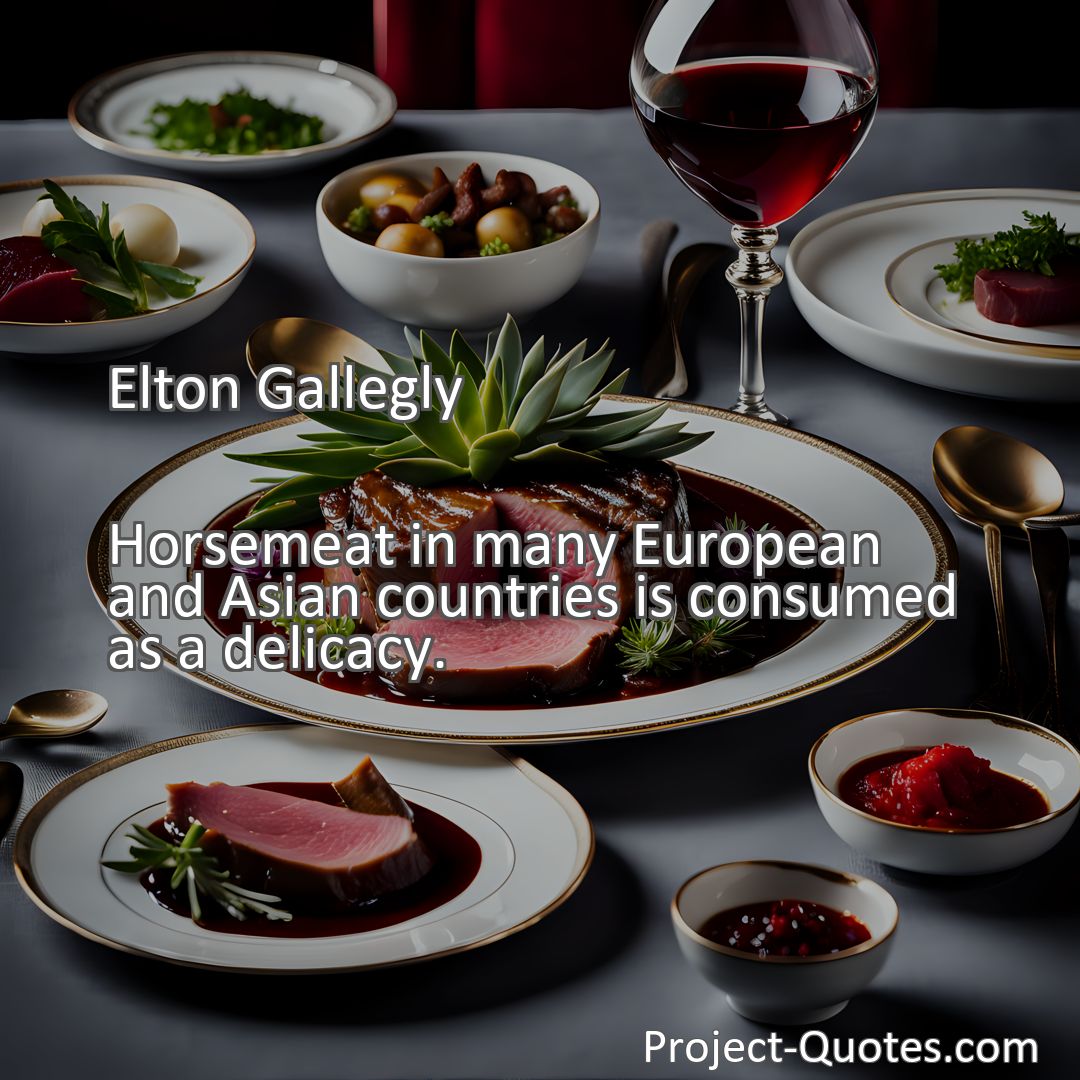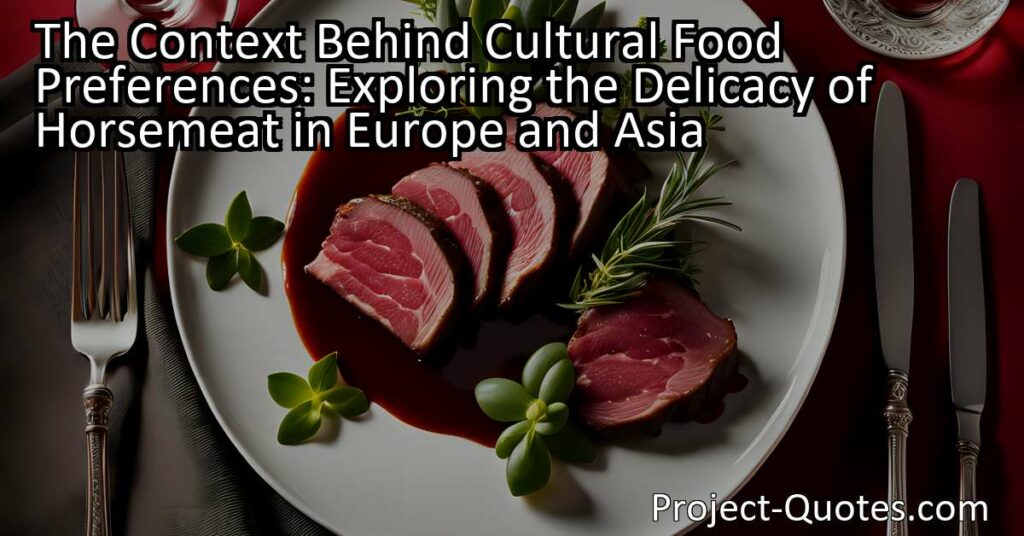Horsemeat in many European and Asian countries is consumed as a delicacy.
Elton Gallegly
In the article, “The Context Behind Cultural Food Preferences: Exploring the Delicacy of Horsemeat in Europe and Asia,” we dive into the cultural factors that have shaped the consumption of horsemeat in these regions. Despite its initial oddness to some, horsemeat is considered a delicacy with deep roots in the culinary traditions and historical significance of European and Asian countries. By understanding the context behind cultural food preferences, we can gain insight into diverse tastes and appreciate the traditions across the globe.
Table of Contents
Meaning of Quote – Horsemeat in many European and Asian countries is consumed as a delicacy.
If you were to travel around the world, you might come across a surprising culinary tradition in many European and Asian countries: the consumption of horsemeat. While horsemeat may sound odd or even unappetizing to some, it is actually considered a delicacy in these regions. This intriguing practice has its roots in cultural and historical factors, and understanding them can give us valuable insight into the diverse tastes and traditions across the globe.
To begin our journey into the world of horsemeat, we need to understand the cultural aspects that have shaped its consumption in various countries. Every country has its own unique food culture, and what may be perceived as strange or exotic in one place, can be ordinary and appetizing in another. Horsemeat is deeply embedded in the culinary traditions of certain European and Asian nations, where it is cherished and celebrated as a part of their cultural heritage.
In many European countries, such as France, Italy, and Belgium, horsemeat has been consumed for centuries. This tradition can be traced back to times when horses were primarily used as working animals. When a horse became too old or unfit for work, rather than letting it go to waste, people began consuming its meat. Over time, this evolved into a widely accepted culinary tradition, with specialized shops and restaurants catering specifically to horsemeat enthusiasts.
In Asian countries, like Japan and Mongolia, horsemeat has a similarly long history. In fact, eating horsemeat dates back to ancient times in these cultures. It was seen as a valuable source of nutrition, particularly in regions where agriculture was limited or where horses were abundant. As a result, horsemeat became an important part of the local cuisine, often prepared in various delicious and creative ways.
While some may find the idea of eating horsemeat unusual or even taboo, it is important to remember that every culture has its own unique dietary preferences and customs. What may be viewed as socially acceptable in one country may be considered inappropriate in another. It is crucial to approach cultural differences with an open mind and respect for diverse traditions, remembering that food can serve as an avenue for cultural exploration and understanding.
Beyond cultural factors, the consumption of horsemeat also raises several ethical and environmental questions. Animal welfare advocates argue that horses are often treated poorly and subjected to inhumane conditions in the horsemeat industry. This raises concerns about the ethical implications of consuming horsemeat and prompts calls for stronger regulations and safeguards. Additionally, the environmental impact of horsemeat production must be considered, as livestock farming contributes significantly to greenhouse gas emissions and deforestation.
In recent years, the horsemeat industry has faced controversies and scandals. Cases of mislabeling, where horsemeat was fraudulently sold as beef, have surfaced in different parts of Europe. These incidents have raised concerns about food safety and traceability, prompting stricter regulations and inspections within the industry. It is essential for consumers to have confidence in the quality and authenticity of the food they consume, regardless of their personal tastes or cultural beliefs.
As we delve deeper into the topic of horsemeat as a delicacy, it’s worth noting that personal dietary choices can also play a significant role. While some people may be intrigued by the idea of trying horsemeat, others may find it unappetizing or morally objectionable. Food choices are deeply personal and can be shaped by a variety of factors, including cultural background, personal beliefs, and individual tastes. It is important to respect and appreciate the diversity of dietary preferences that exist worldwide, recognizing that there is no universal definition of what is considered “normal” or “acceptable” when it comes to food.
In conclusion, the consumption of horsemeat as a delicacy in many European and Asian countries is a fascinating aspect of global culinary traditions. Cultural, historical, ethical, and environmental factors all contribute to the varying perspectives on and acceptance of this practice. While some may find the idea of eating horsemeat strange or objectionable, it is important to approach different cultural practices with an open mind. By understanding the context behind cultural food preferences, we can broaden our horizons, foster appreciation for diverse traditions, and promote a more inclusive and respectful global society.
I hope this quote inspired image brings you hope and peace. Share it with someone who needs it today!


